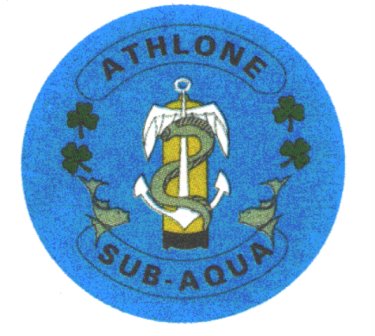Medical Commission Report January 2008
Introduction
CFT has had a well functioning medical assessment system for many years. Why change it in 2008? The reasons include:
There is increasing evidence and experience in other diving organisations from which we can learn.
It is important that our medical assessment process is linked to health standards that reflect international best practise.
While diving in Ireland is safely enjoyed by thousands of divers, we have sad experience of deaths and other serous incidents some of which may have been influenced by underlying health problems.
At the November 2007 CFT Delegate Meeting in Enniscrone, there was agreement that a new medical assessment system would be implemented. The main objectives of the changes are to ensure that:
CFT divers meet a minimum standard of fitness. This may well be as good a measure of health status as some of the more traditional medical checks.
The expense and administrative difficulties created by the medical assessment system are minimised and that we focus on those activities that are most likely to be beneficial.
That a robust system of regular reviews is put in place that includes self-assessment questionnaires, medical examinations and specialist reviews as required.
A transparent system of medical standards is available to divers and doctors alike.
All of us, as responsible divers, take full responsibility for ensuring that we are fit and well enough to dive safely.
The medical assessment system from 2008
The key parts of the medical assessment will now include:
Fitness test
This will be taken by every active diver every year. The test may be done in the pool (swimsuit) or at sea (wetsuit, fins and mask). It will require a swim of 200m and either a length underwater (pool) or a duck dive to 3m (sea). The test will be organised by the club Diving Officer or his/her nominee and the result (pass or fail) will be reported to Head Office. A more detailed outline of the test will be circulated within the coming months.
Self-assessment questionnaire
This will be completed by every diver annually. The questionnaire will be confidential and returned directly to the Chair of the CFT Medical Commission, a Registered Medical Practitioner. The only information forwarded to CFT Head Office will be a statement from the Medical Commission that a diver is cleared to dive or is not cleared to dive.
The questionnaire will ask about familiar health risks, about the date of your last medical and ask for permission for any issues that arise to be clarified with your doctor.
It is important to stress that the ‘wrong’ answer to a question does not immediately exclude you from diving. Many such issues may simply require clarification with you and/or your doctor. It is essential that all of us complete these forms fully and honestly, if diving safety is to be ensured.
Medical Assessment
An assessment by your own doctor will be required when you join CFT, when you reach age 35 and three yearly until age 55. After age 55, the assessments will be carried out annually. Chest X-rays, ECGs and other investigations will be at the discretion of the examining doctor. The main focus of these assessments will be on the important general risk factors such as heart, lung or neurological diseases or medicines that may create risks. When specific diving related issues are identified, they may require further specialist assessment.
Conclusion
Implementing the changes
The 2007 AGM has approved these changes. During 2008, CFT divers will be asked to comply with the fitness tests and self-assessment questionnaires; the frequency of assessments by your doctor will change in 2008 and the health standards will be implemented. From 2009, it is likely that CFT will require compliance with all of these procedures for any applicant to hold active diver status with the organisation.
In summary
From 2008, CFT divers will be asked to complete a fitness test and confidential medical assessment each year together with a medical assessment by their own GP which will be less frequent than in the past. Easily accessible health standards will provide benchmarks against which divers and doctors can assess the potential effects of health problems on their suitability to dive.
The full report is available in the Winter / Spring 2008 issue of SubSea
Regards
Cian
Tuesday, February 26, 2008
Subscribe to:
Comments (Atom)
